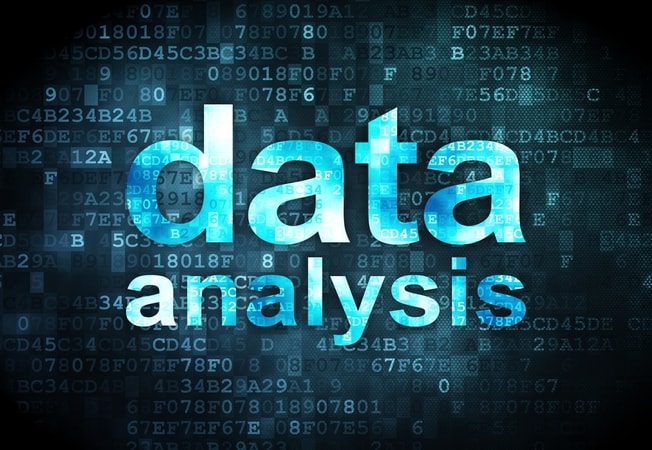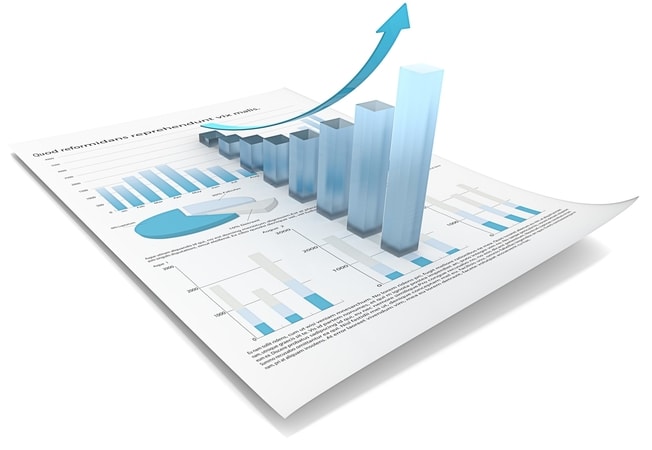Considerations When Choosing the Best Qualitative Data Analysis Software for a Dissertation (NVivo vs MAXQDA)
When using qualitative methodology, the research data collected may require students to outsource qualitative data analysis services using Nvivo, MAXQDA, or ATLAS.ti, among other software to organize, map, and establish meaning and sense from the data. Choosing the right data analysis software package helps to correctly code, retrieve, and map the data collected from qualitative research methods to come up with valuable insights and reliable findings.
Because doctoral students are expected to submit their dissertations within strict deadlines, it is essential to choose the best qualitative data analysis software to avoid possible time wastage by repeating the process, papers being returned for correction, or reporting the wrong research findings owing to inappropriate choice of software.

Qualitative data analysis consultation services can be helpful for a student to submit a research project within the stipulated time with a well-organized and correctly written analysis and findings chapter. The experts understand the various factors to consider when choosing the best qualitative data analysis software for a dissertation. Some of the factors considered in qualitative data analysis services using Nvivo vs MAXQDA are discussed in this article.
Qualitative researchers collect qualitative data using interviews, focus groups, and document reviews among other methods. Such data can be analyzed using various software to explain, interpret, and understand themes or patterns and relate them back to the aims and objectives of the study.
The most suitable choice of qualitative data analysis software package should provide assistance in managing large volumes of information, saving time, and improving the validity and reliability of the qualitative research without relying on manual or clerical work. Some of the factors to consider when choosing qualitative data analysis software for a dissertation include:
1. The type of qualitative data to be analyzed
Data types in qualitative research include responses obtained from interviews, focus groups, observation notes, and collations from documents, audio, or videotapes among others. The data can be collected based on the different qualitative designs such as phenomenology, case studies, grounded theory, and ethnography. To analyze the non-numerical data, one needs software that allows them to perform procedures such as analyzing transcripts, coding and interpreting text, and creating reports.
The software should also contain tools for effective analysis of voluminous text, video, audio, and other forms of qualitative data to facilitate organized management and storage of research information. Before deciding to perform qualitative data analysis using Nvivo, MAXQDA, or ATLAS.ti among other software, one should be sure that their choice is the most appropriate for the type of data that they want to analyze to report reliable and accurate results.
2. The volume and formats of the data
The qualitative methodological approaches and analysis software are used in different fields such as sociology, healthcare, music, tourism, theology, and psychology. These fields produce data in different formats including text, graphics, audio, or video. Researchers, students, or scholars should choose the right data analysis software depending on the format of data they want to analyze, interpret, and draw conclusions depending on the revealed themes and patterns.
One should consider software that can accommodate the volume of data they have and extract content from different sources such as video, audio, graphics, and documented files. It is also possible to get help from a professional dissertation data analyst whenever the need arises to accomplish research goals effectively within the specified time frame.
3. Ease of use of the software
The ease with which one can operate a particular software depends on their skills, expertise, and experience with it. Some software may be easy to master while others may require extra effort and time to operate. An effective qualitative data analysis software should be logically designed for self-instruction, support different sources of information, and be menu-driven.
One should consider the skills possessed by the user to make it easy to operate the software. In addition to relevant user expertise in operations, the software should have programs that ease the performance of basic tasks in qualitative data analysis such as finding trends, relationships, and testing theories.
Those who decide to hire a qualitative data analyst for a dissertation should also be sure that the analyst possesses the relevant skills and experience in operating the preferred software. Having the right skills not only eases the software operations but also speeds the data analysis process while ensuring the accuracy of procedures to yield correct and reliable results that are relevant in the context of the research project or paper.

4. Licensing and cost of acquisition
Some qualitative data analysis software are available for free download while others have to be paid for and authorized for use. When choosing qualitative data analysis software, one should be sure to find out if it is available for free use.
If the software needs to be paid for, one should also consider whether the cost of acquiring it is ideal and practical within their context and budget. It should be affordable and accessible for the user to analyze data stored after collection without straining financially, especially in the case of students.
5. Effectiveness and user friendliness of the qualitative data analysis software
Based on features, qualitative data analysis software can be categorized into those that:
- Retrieve text,
- Retrieve and code, and
- Retrieve, code, and build theories.
The specific features determine the effectiveness and the extent to which qualitative data analysis procedures can be performed. One should choose dissertation data analysis software whose features do not complicate its operations.
It should facilitate the analysis of audio, text, or video files and all other forms of qualitative data to produce valid and reliable results depending on the statistical questions and objectives. The availability of user manuals and customer support services should also be considered so that one can find additional information or seek clarification when operating the software.
Choosing data analysis software that is not only effective but also user-friendly speeds up the analysis process and report writing for timely submission of the dissertation while strictly adhering to the deadlines stipulated by the learning institution.
In case of any difficulties, challenges, or unavoidable circumstances under which one cannot analyze their own data, it is possible to get help from a professional dissertation data analyst who can effectively operate specific software to produce reliable, valid, and relevant research findings.
6. The purpose of conducting qualitative data analysis for the dissertation
After collecting data for a qualitative dissertation, analyzing it is necessary to gain valuable insights and report the correct findings. Qualitative research is mainly meant to explore people’s behavior, emotions, and perceptions with regard to a particular phenomenon or subject matter. One can conduct deductive or inductive qualitative analysis based on the aims and objectives of the research.
Qualitative data analysis fulfills the purpose of deriving meaningful insights and relevant research findings for the dissertation to meet the standards set by the university or learning institution for the award of a degree. When choosing a software to conduct the analysis, it is prudent to review its features to determine whether it is the best choice for accomplishing the purpose. If one decides to hire a qualitative data analyst for a dissertation, they must ensure that the expert uses the recommended software to come up with the correct findings.
7. Data visualization and reporting features of NVivo vs MAXQDA
The best qualitative data analysis software for a dissertation should allow the researcher or user to visualize different forms of data stored in electronic media in charts, graphs, geographical maps, and others depending on the needs of the project. The software should also allow users to create and extract reports that are customized for their needs and contexts.
Qualitative data analysis consultation services assist in guiding researchers in selecting the most appropriate software for their dissertations based of the type of data they have collected, skills, experience, and cost implications among other factors. The consultants should be familiar with all the features of the different software for effective assistance to users.

8. Content search, storage, and coding capacities
An effective software for a qualitative dissertation should support different methods used to search qualitative data. It should also facilitate the extraction of content from video files, graphics, text documents, audio, and any other relevant source of qualitative data. The coding features in the qualitative data analysis software allow the user to systematically code different formats and categories of data.
Therefore, when thinking of conducting qualitative data analysis using Nvivo vs MAXQDA or any other software, one should first consider the content search, coding, and storage elements for each depending on the size of the data set. The features of the software should be beneficial to the users for effective, fast, and efficient data analysis process.
Considering these factors help in making the choice of software that is intuitive, easy to learn, able to address the needs of the analysis, facilitate visualization, and identification of themes and theories. In addition, the software should be reasonably priced and equipped with codes and functions for identifying outliers, constructs, themes, and sorting patterns.
No matter how popular a software may be, one should always choose the best option for their specific dissertation data analysis based on the unique needs of the paper/project. When appropriate, one can outsource qualitative data analysis consultation services for further guidance and direction for their dissertations.





